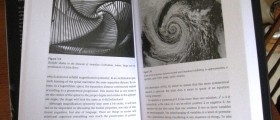Overview
Personality disorders tend to develop around the teenage years or in early adulthood. Patients affected with these disorders may seem to be in denial about their problem because, to them, their way of behaving and thinking seems genuinely normal. This can also alienate relationships between the patient and others because they blame others for the challenges that may face.

Causes
One's personality begins to develop during childhood and will depend on factors such as:
- Genetics - some personality traits will inevitably be passed down from parents and grandparents and these are referred to as one's temperament.
- Environment - the surroundings one grows up in, events that they may be exposed to, and interactions with others will also mould a person's personality.
Types of personality disorders
The personality disorders are grouped into three types depending on the symptoms and characteristics of the conditions.
Cluster A personality disorders
These personality disorders are associated with eccentric and odd behaviours or thinking patterns. They include:
- Paranoid
- Schizotypal
- Schizoid
Cluster B personality disorders
These disorders are defined as overly emotional, dramatic personalities where the behaviours and thinking patterns may be unpredictable. These personality disorders include:
- Borderline
- Antisocial
- Narcissistic
- Histrionic
Cluster C personality disorders
These personality disorders are described as being associated with fearful or anxious behaviours or thoughts. They include:
- Dependent
- Avoidant
- Obsessive-compulsive personality disorder (not to be confused with an obsessive-compulsive disorder which is an anxiety-related mental health condition).
Paranoid personality disorder
The following symptoms are associated with a person affected by paranoid personality disorder:
- There's an unjustified belief that others are trying to deceive or harm the individual.
- There's a persistent suspicion or mistrust of others and their alleged motives.
- The trustworthiness and loyalty of others are constantly questioned.
- There's a perception of certain non-threatening situations and innocent remarks as being personal attacks or insults towards the person.
- The affected individual is hesitant to trust or confide in others as there is an unreasonable fear that they will use the discussed information against them.
- There's a tendency of these individuals to hold onto grudges against others.
- They become hostile or angry towards others when there is a perceived insult or threat towards them.
- There are recurrent and unjustified beliefs or suspicions of sexual partners or spouses being unfaithful to the affected person.
Complications
- www.ncbi.nlm.nih.gov/pubmed/22928850
- Photo courtesy of SteadyHealth
















